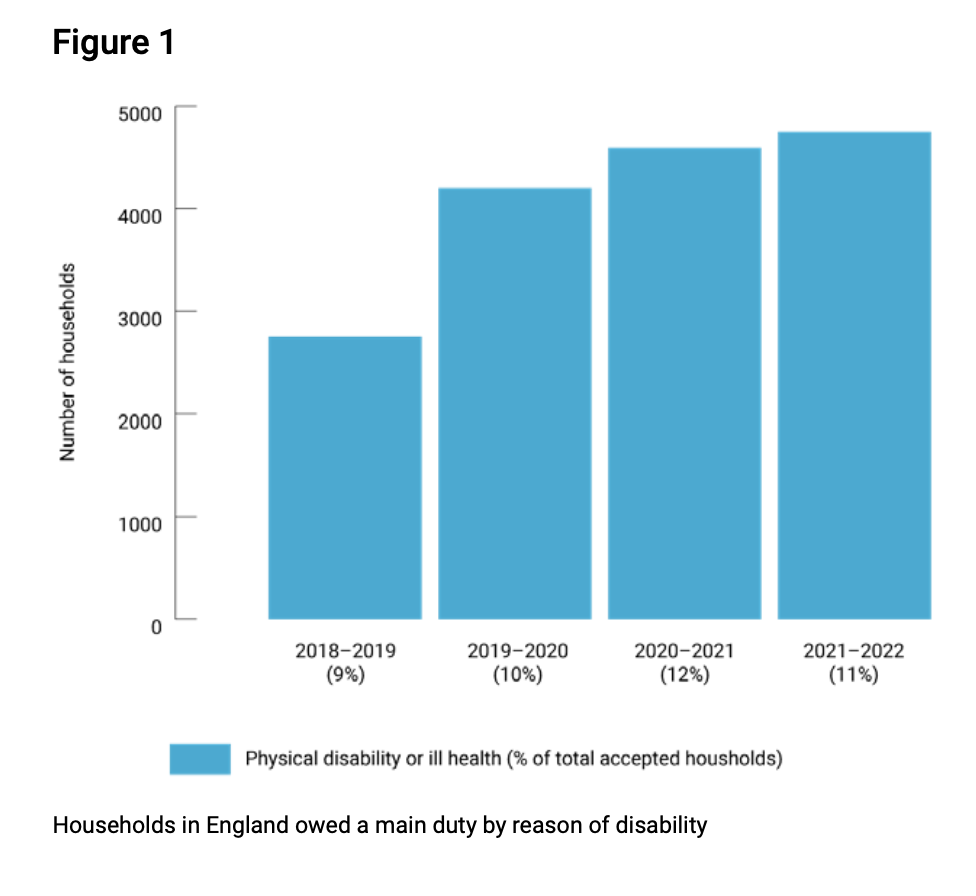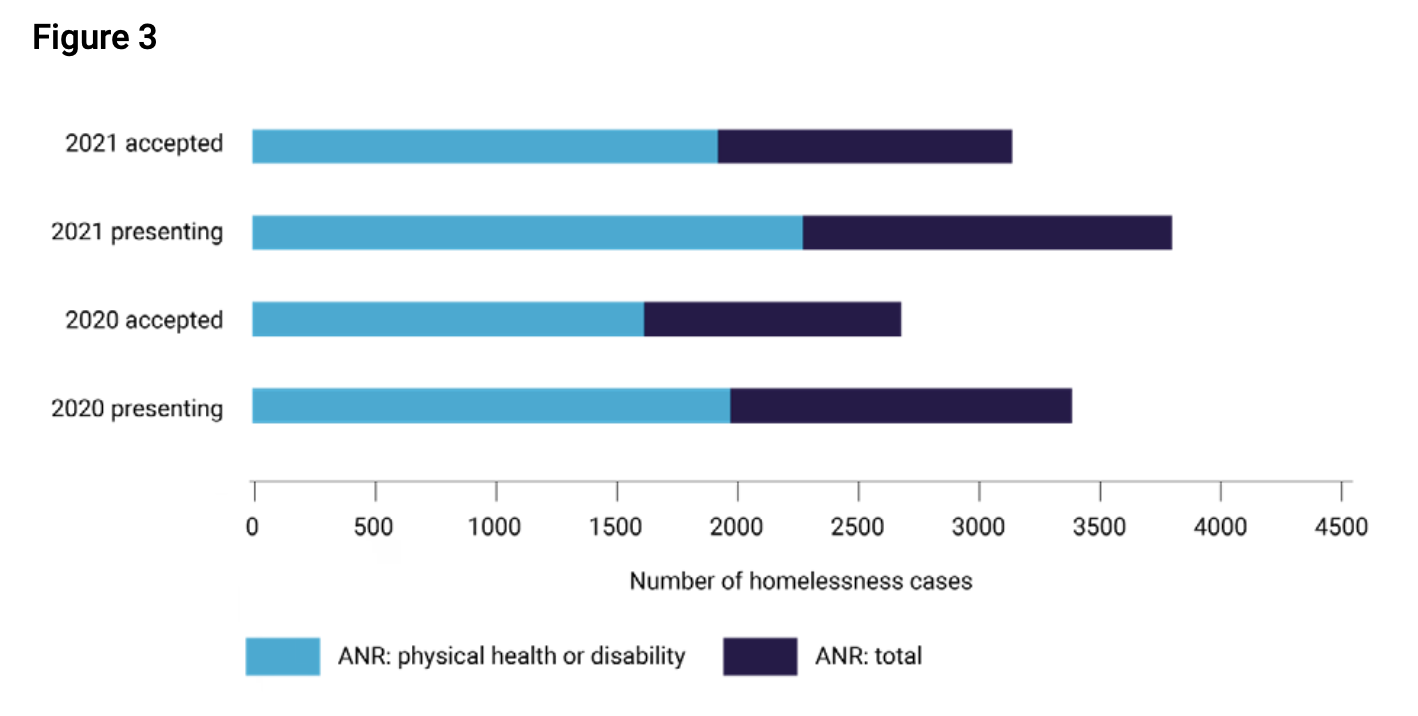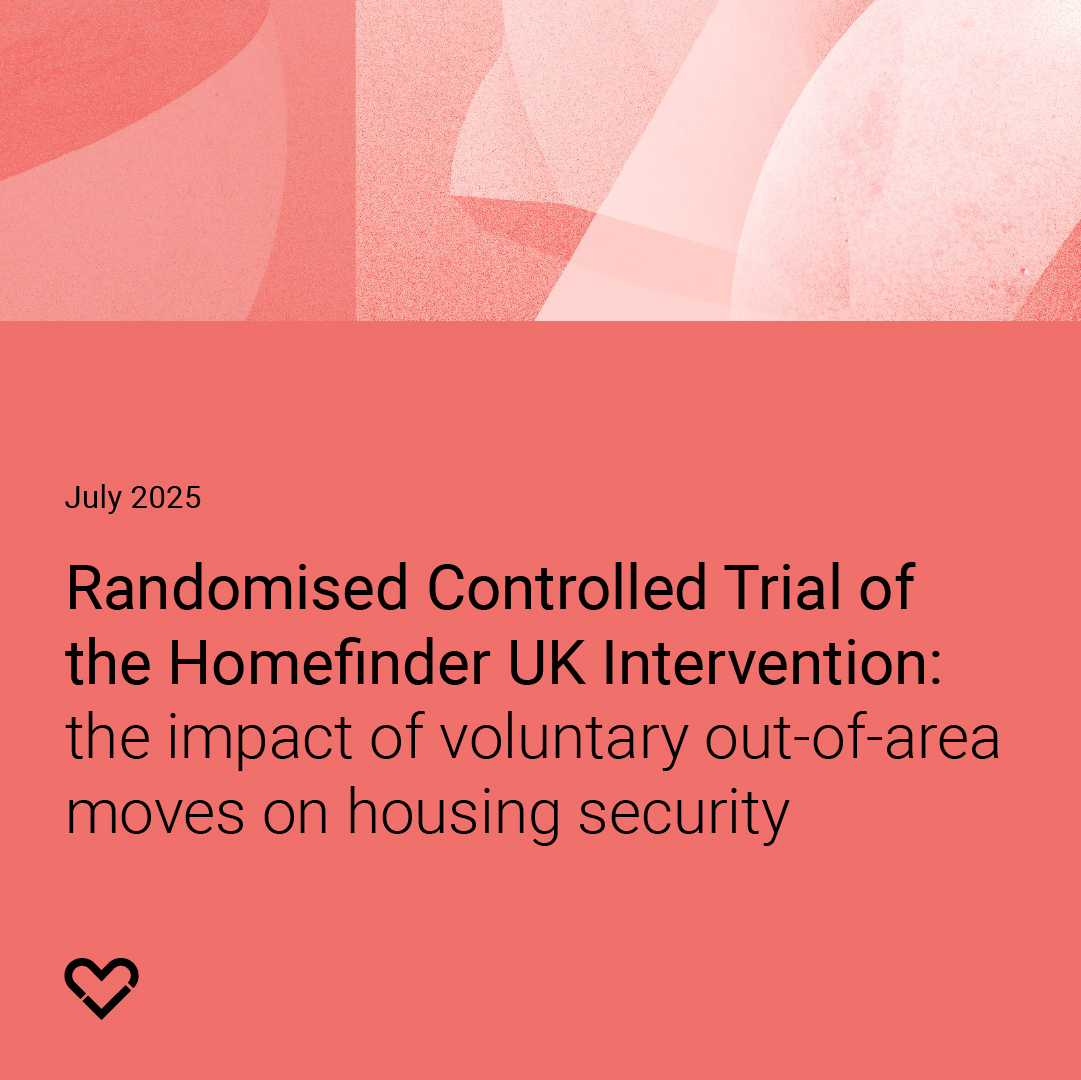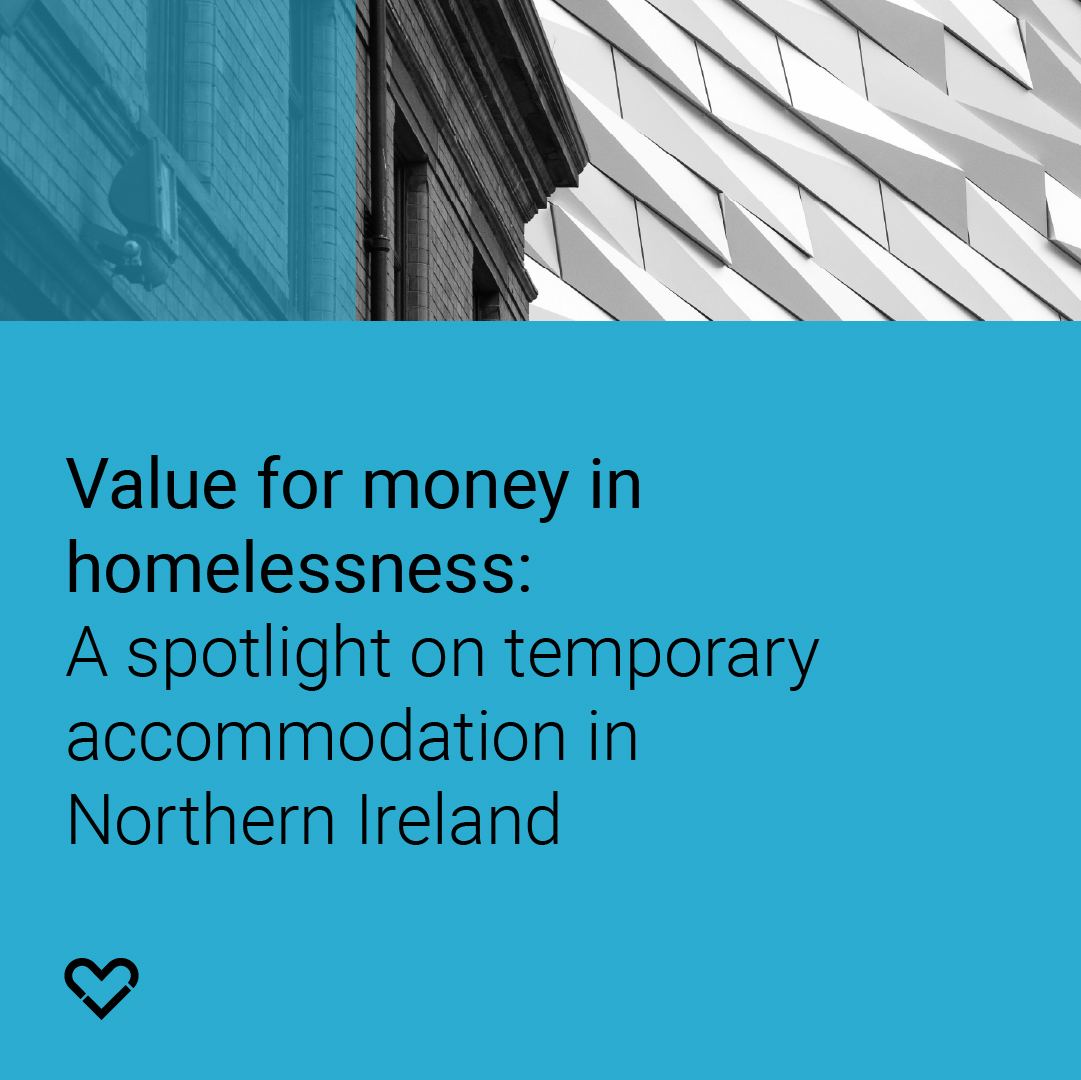Homelessness and disability in the UK
Outline of the study
This research examines the links between disability and homelessness in the UK, including its prevalence within homeless populations, barriers to effective support, and interventions which can improve outcomes. The study highlights the significant challenges faced by people with disabilities in accessing appropriate housing and support, gaps between official data and actual prevalence of disability among people experiencing homelessness.
Findings in brief
- People with disabilities are significantly over-represented in the homeless population. Official data is likely to underestimate its prevalence
- In England, the number of households owed a statutory housing duty due to physical disability or ill-health increased by 73% between 2018/19 and 2021/22. Physical ill-health/disability accounted for 17% of all recorded support needs in 2021/22
- A recent audit found that 82% of respondents experiencing homelessness in England had received a mental health diagnosis
- Research suggests much higher rates of disability within the homeless population than shown in official statistics: one survey found that 34% of single homeless people had disabilities, whilst another found that 13% of day centre clients had learning disabilities - compared to 2% in the general population
- Autism prevalence is estimated at between 12.3% -18.5% amongst people experiencing homelessness, versus 1-2% in the general population
- Key barriers to supporting homeless people with disabilities include: high service thresholds for support and care, lack of accurate diagnoses, lack of suitable housing and/or support and inability to meet diverse needs
- Only 7% of homes in England currently have minimal accessibility features, and only 0.7% of Scottish local authority housing is wheelchair accessible
- People with disabilities often experience homelessness for longer than those people without disabilities
- The poverty rate for people with disabilities in the UK is 32%, 12% higher than in the general population. Employment rates remain significantly lower than that of the general population. These factors also increase risk of homelessness
- Hostels and other temporary accommodation can be particularly problematic for people with neurodevelopmental conditions.
Recommendations in brief
- Improve recording and monitoring of disability, through consistent, clear terminology, separation of physical and learning disabilities and mental ill-health, and recording possible, as well as diagnosed disabilities
- Increase housing provision designed according to accessibility principles, rather than retrofitted adaptations and involve people with disabilities in service design
- Promote wraparound support, Housing First and supported accommodation, which can support disabled people with multiple needs and prevent repeat homelessness
- Provide specialist training for professionals on identifying and supporting hidden disabilities, improving communication methods and peer support approaches
- Refocus policy to recognise links between disability and homelessness
- Improve consistency of implementation across the UK and allocate sufficient funding for accessible housing and specialist support.









.jpg)

